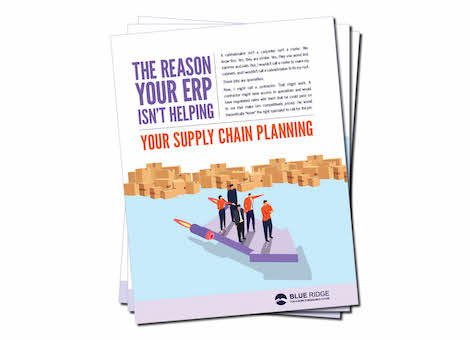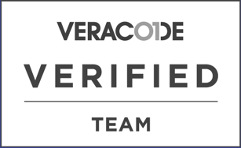A cabinetmaker isn’t a carpenter isn’t a roofer. We know this. Yes, they are similar. Yes, they use wood and hammer and nails. But, I wouldn’t call a roofer to make my cabinets, and I wouldn’t call a cabinetmaker to fix my roof. These jobs are specialties.
Now, I might call a contractor. That might work. A contractor might have access to specialists and would have negotiated rates with them that he could pass onto me that make him competitively priced. He would theoretically “know” the right specialist to call for the job.
THE REASON OUR FORECASTING WORKS.
More than likely, though, he’d just call some guy who’s done a couple of cabinet jobs for him before that turned out “just fine.” He’d probably give them a ring and see what they were up to. But the guy who would be working on my cabinets would really only be an add-on. And choosing an add-on whose work is “just fine” introduces the risk that my new cabinets might fall down. It also means I will have given a lot of power and control over the success of my cabinet project to a single contractor. As the major stakeholder in this project, my wife hates that idea. So, I need to find a cabinetmaker. Someone who really knows cabinets. A specialist who lives cabinets. A contractor costs too much money for me to be happy with “good enough.” And so it goes with supply chain management – and more specifically – supply chain planning and demand management.
Supply chain planning and demand management is a single, highly specialized, function of an overall supply chain management strategy. Planning goes directly to the heart of the matter – how can I get my supply chain to reduce inventory costs, reduce exposure to the risk of holding too much inventory, and increase profit?
Or -- how can I get the right number of items to the right place at the right time, every time?
Is any business really doing so well that it can accept “good enough” or “ballpark?”
Because that is what a business can expect from an ERP. Ballpark.
But there’s a big difference between playing the game and sitting in the nosebleed seats. How much money are stakeholders willing to leave on the table by working with an ERP that only includes supply chain planning as an add-on or afterthought?
Your business requires a solution that knows your business.
If supply chain management is the business you’re in and if you want supply chain planning and demand management to really stand out as a differentiator – then you need precision planning that is best of breed and cloud-native. You don’t need an over engineered ERP solution that travels a mile wide, an inch deep, doesn’t know your business, is infinitely more complex, and requires a team of surly PhDs just to keep it running.
The approach professional retailers and distributors would want to take is to manage demand and supply planning in the most economical way possible. Begin with the demand forecast. Forecast customers and what drives them to buy, such as promotions, demographics, and a host of other factors. Then, provide unprecedented accuracy to predict when and where sales will occur.
You want more than a statistical print out that estimates future demand based on what happened in the past.
And that’s the difference you can expect between specialty software and an ERP.
A specialized solution completes your planning function in a way that adds value.
Because if your business edge comes down to controlling inventory costs you want to make sure you get it right every time.
At Blue Ridge, our approach is to focus 100% on the function of increasing your inventory optimization. That is our single task.
We don’t try to boil the ocean and see what bobs up. Our focus is targeted on optimizing your supply chain for wholesale and retail – and our system is built by people who know exactly what the supply chain planning side of the business is good for, and it is purpose built with a deep domain focus on supporting distribution and retail.
An ERP isn’t. It’s that simple.
Choosing an ERP is like choosing that contractor. They’re not really invested in your overall goal. They don’t care about your cabinets. They’re slow to change. They take longer to show results, not to mention ROI. They’re unnecessarily large and complex.
To get you to second guess yourself an ERP vendor might throw out words like “data integration” and talk about how your data is already sitting in ERP and that it’s easiest to leave it there and work out of one place.
But it’s 2018 and nobody is worried about seamless integration anymore. Any best of breed software on the market is going to have pre built connectors that allow its users to connect to any ERP. In 2018, those are called table stakes.
So a specialized supply chain planning solution – especially one that’s cloud based – is the solution you’re probably looking for.
Here are some other benefits over an ERP:
- Subject matter expertise focused on completing one area well
- Weekly or monthly updates and enhancements
- Specialized systems
- Better maintenance
If you’re looking for a supply chain planning cloud, and looking to solve demand forecasting, replenishment optimization, aggregate forecasting and planning, multi-echelon inventory planning, allocation, collaborative planning, sales & operation planning, or supply chain analytics – you want a company with a deep knowledge of supply chain planning.
You don’t want to be an afterthought. You don’t want your business resting on a guy…who knows a guy.
Blue Ridge is a 100% cloud-native solution that has what your business is looking for if it’s looking for demand planning – and it offers the additional benefits of stability and scalability. We release new features on a monthly basis to customers, and can help your business take advantage of the cloud to offer true elasticity – pegged to market reality – meaning you can increase your scale at will without any preplanning or downtime.


